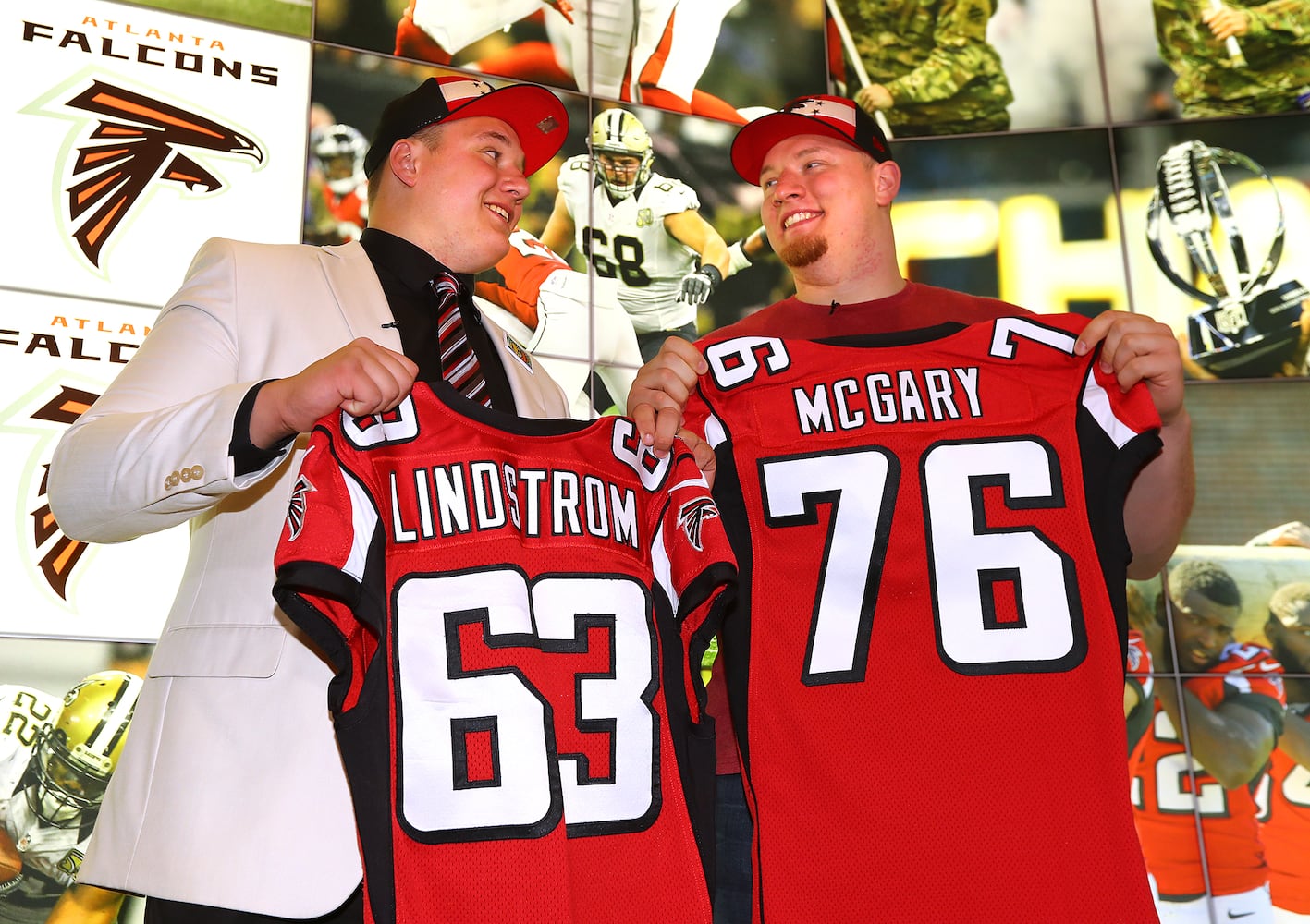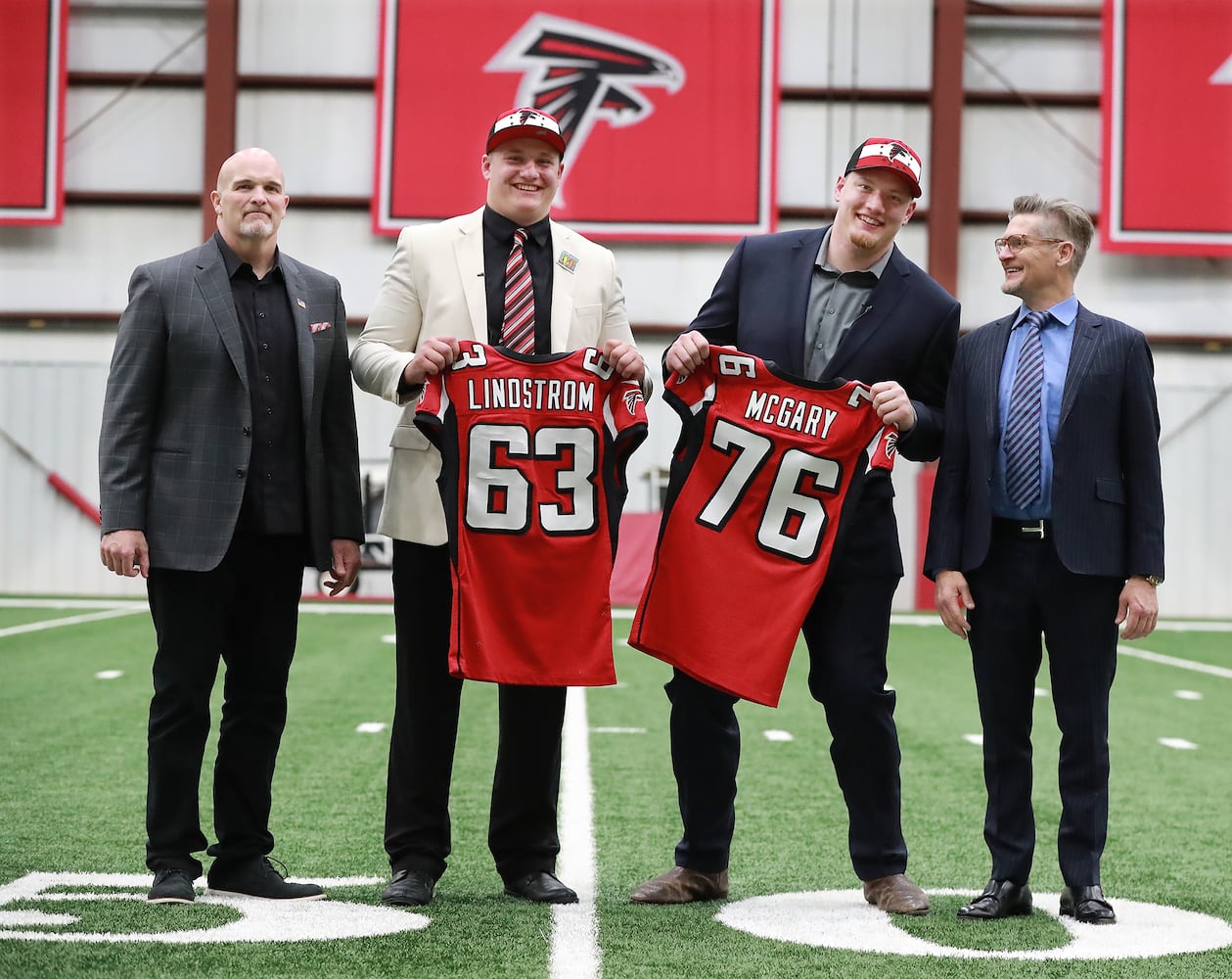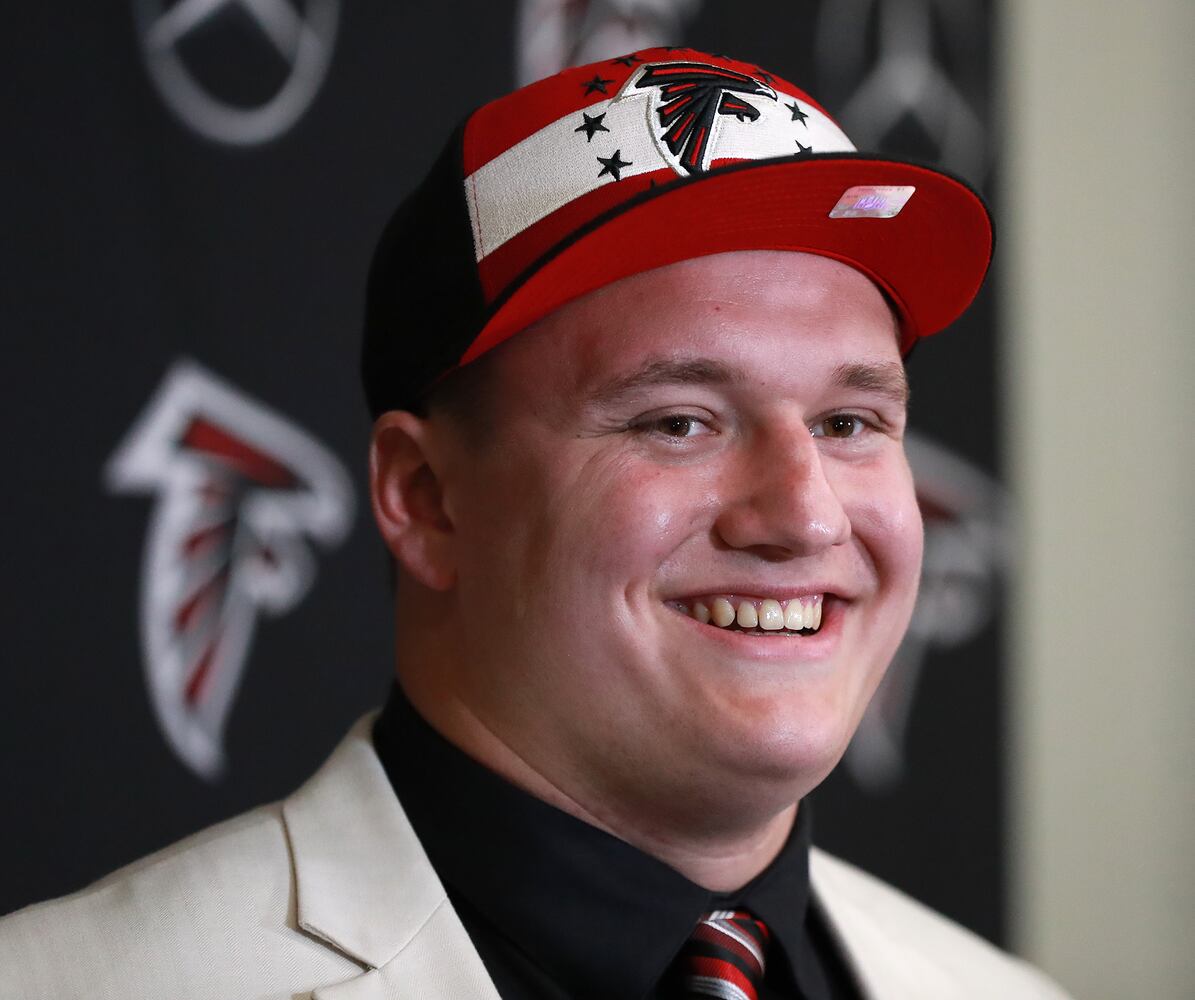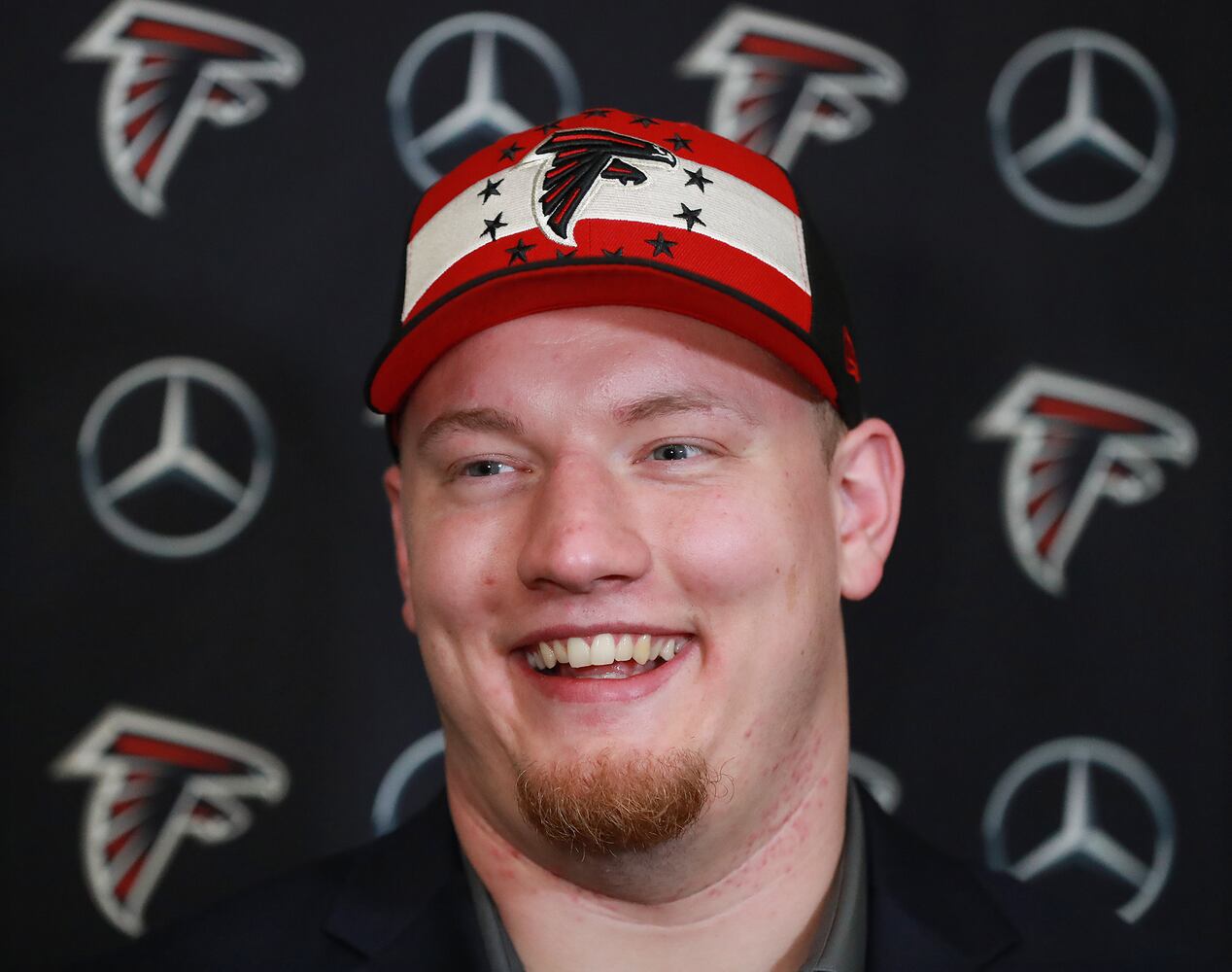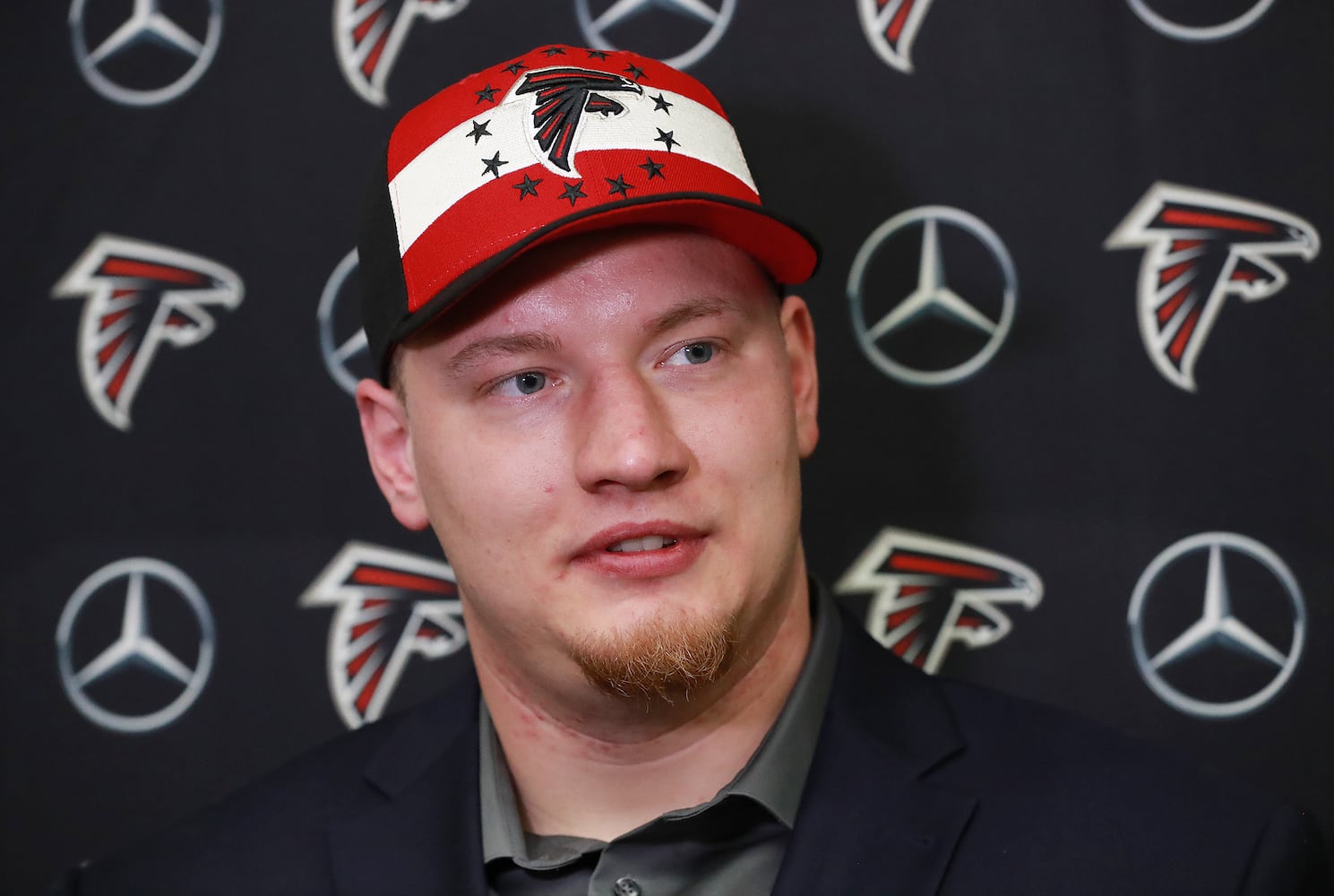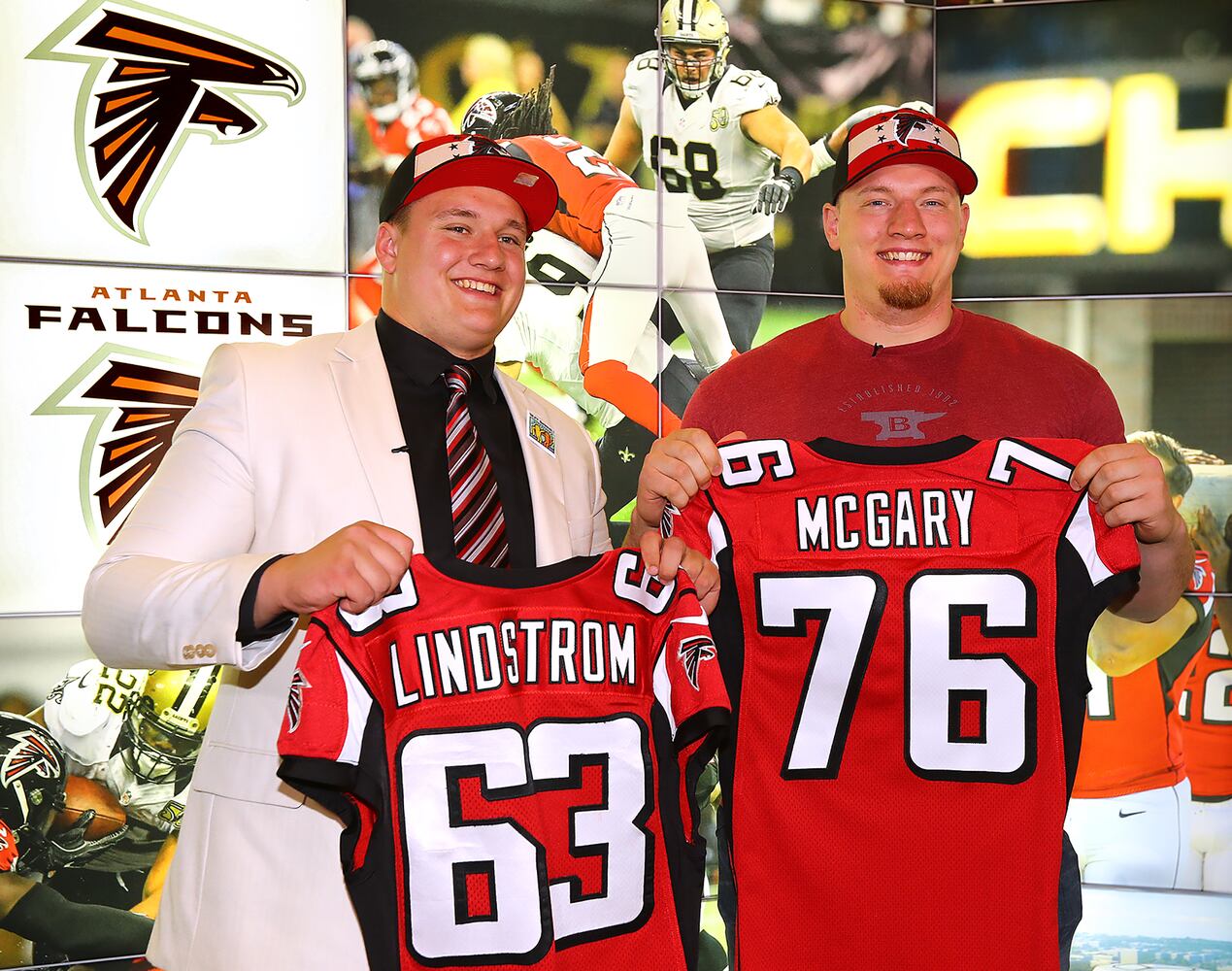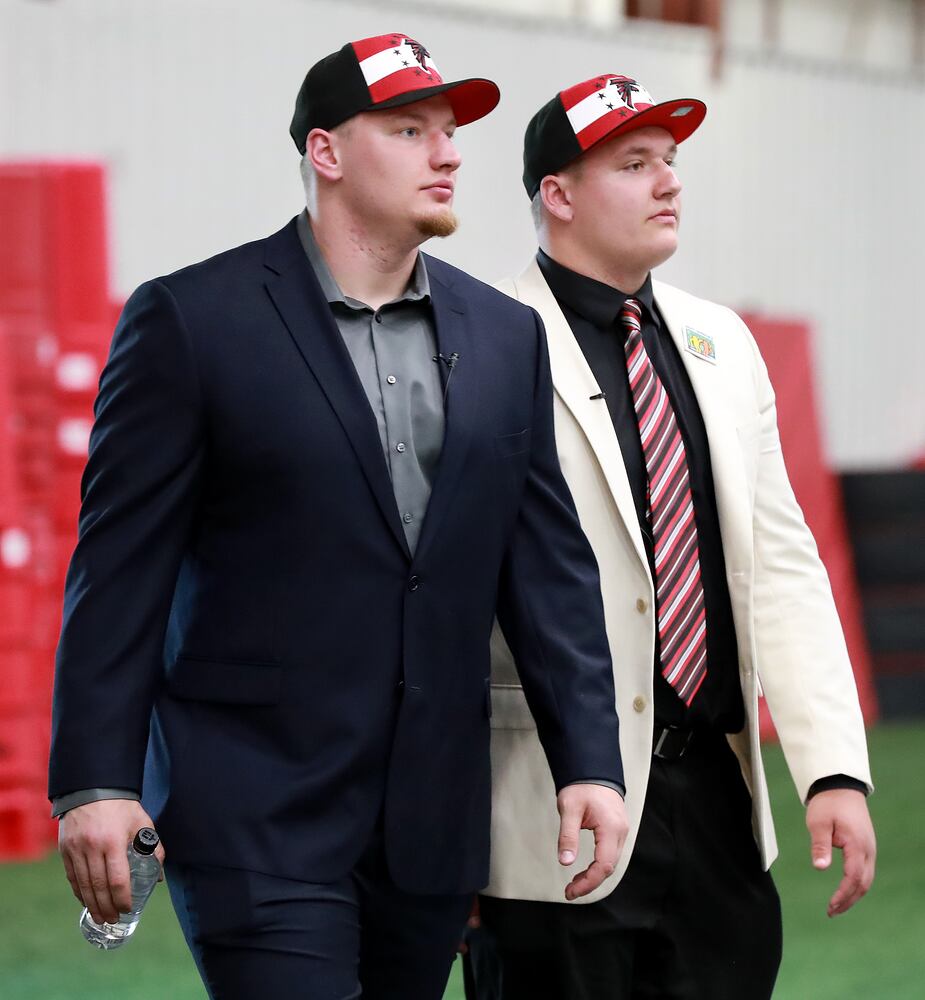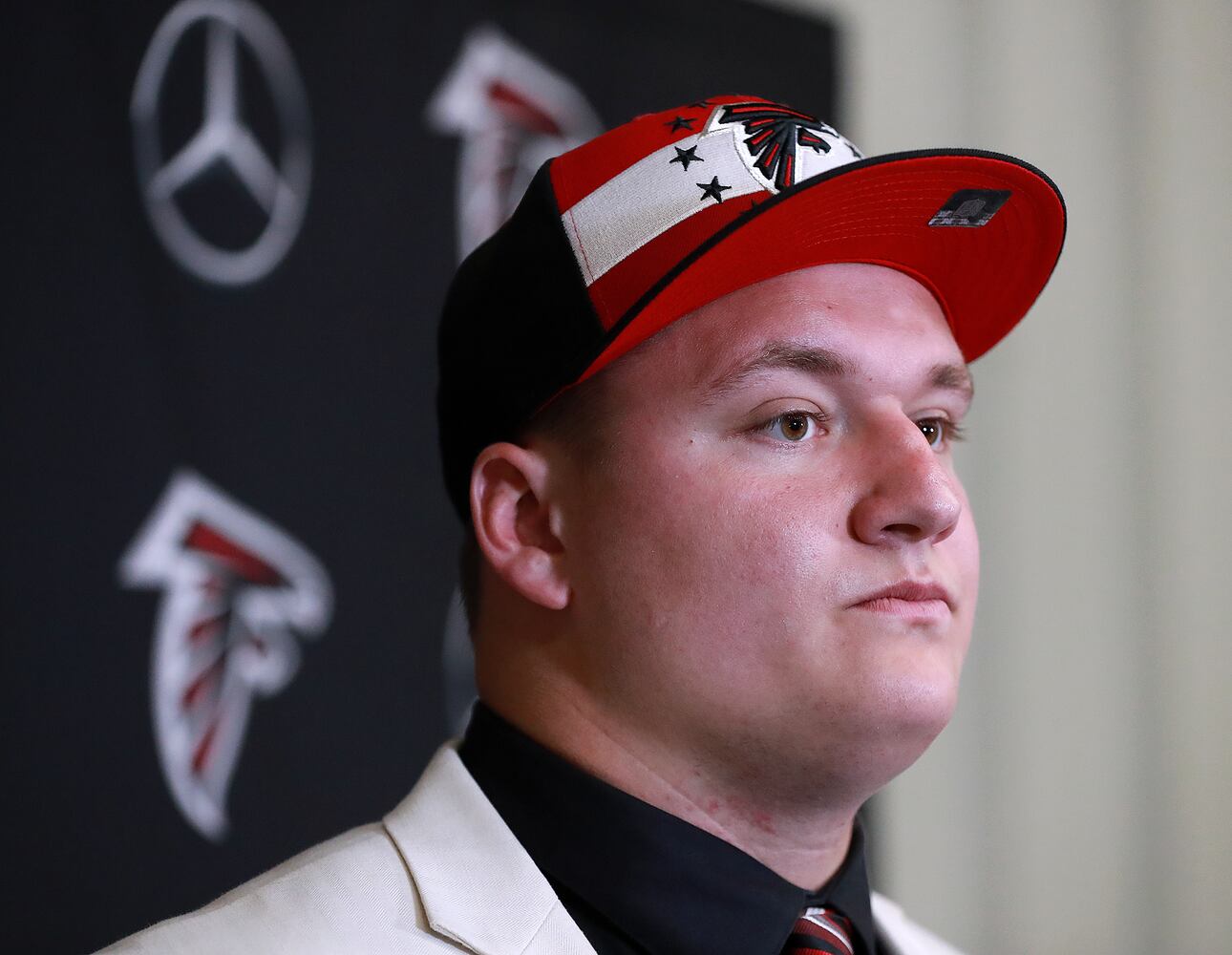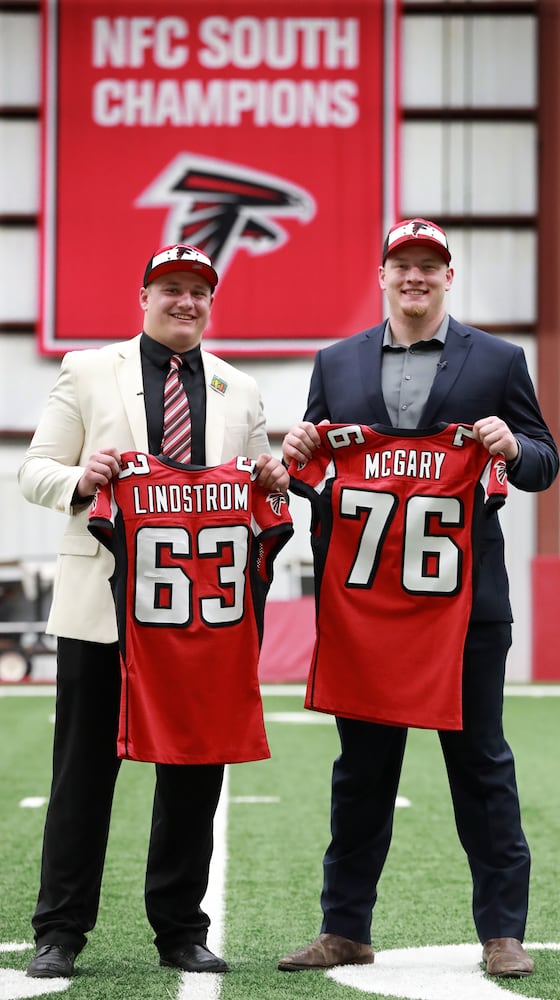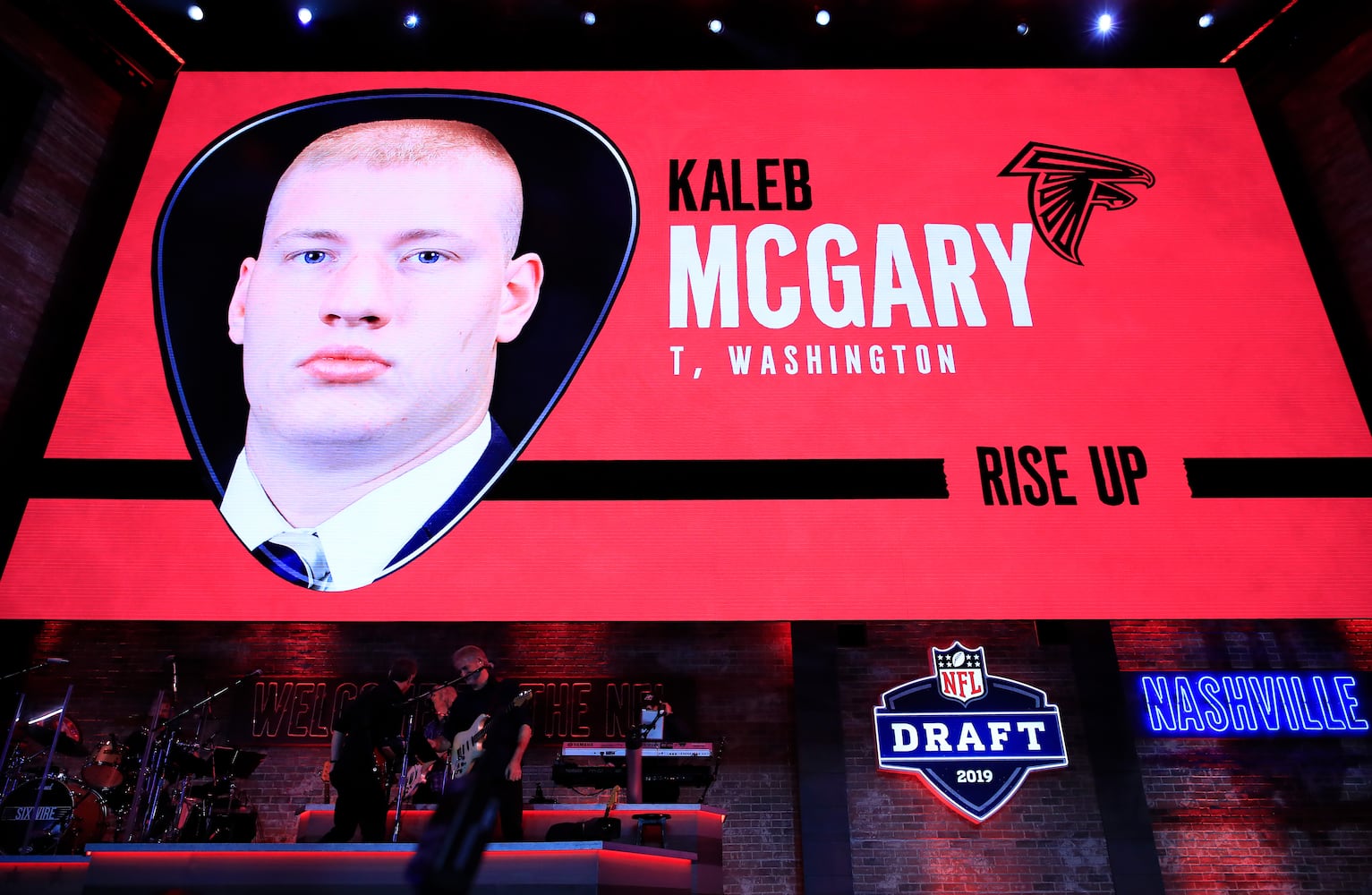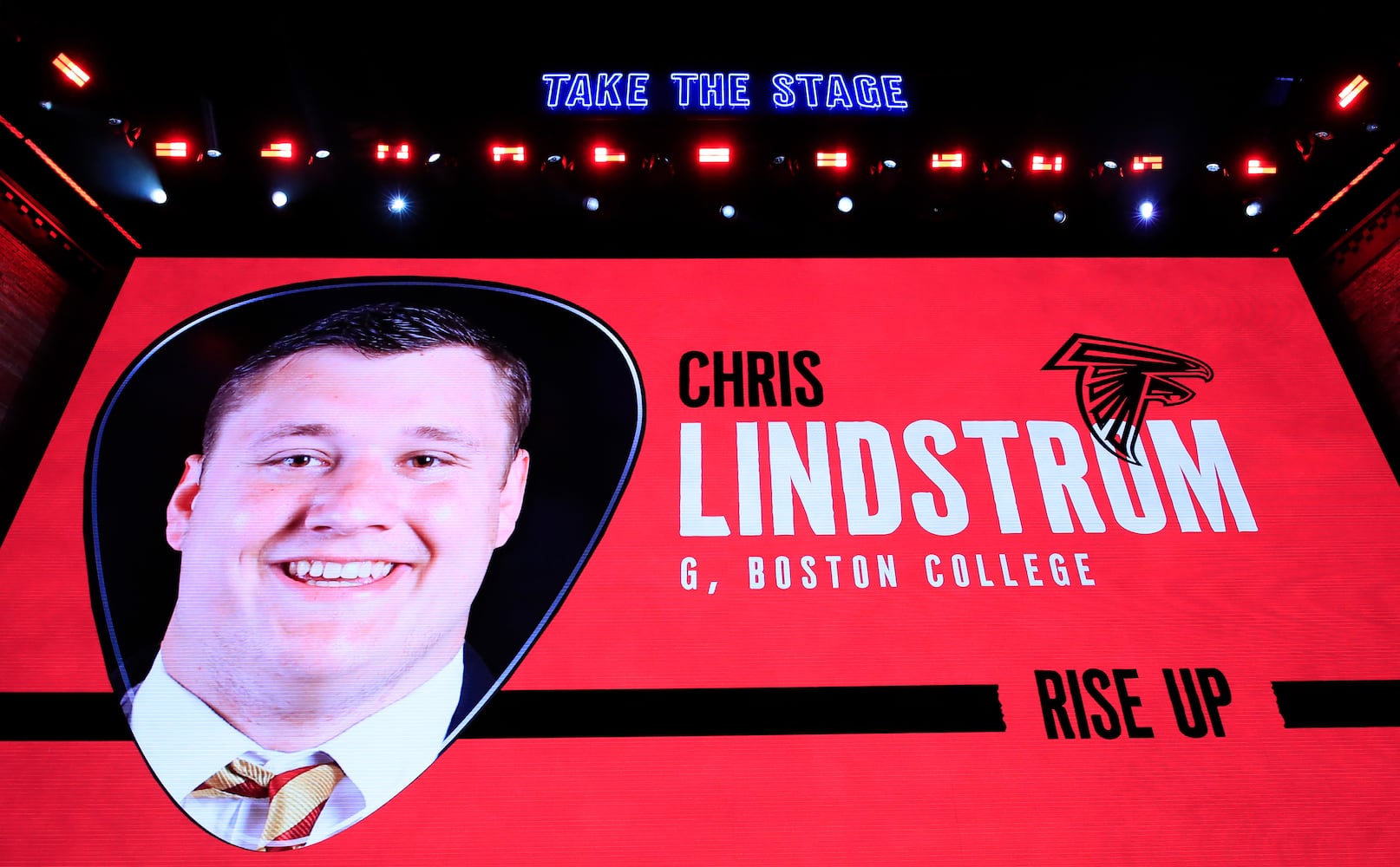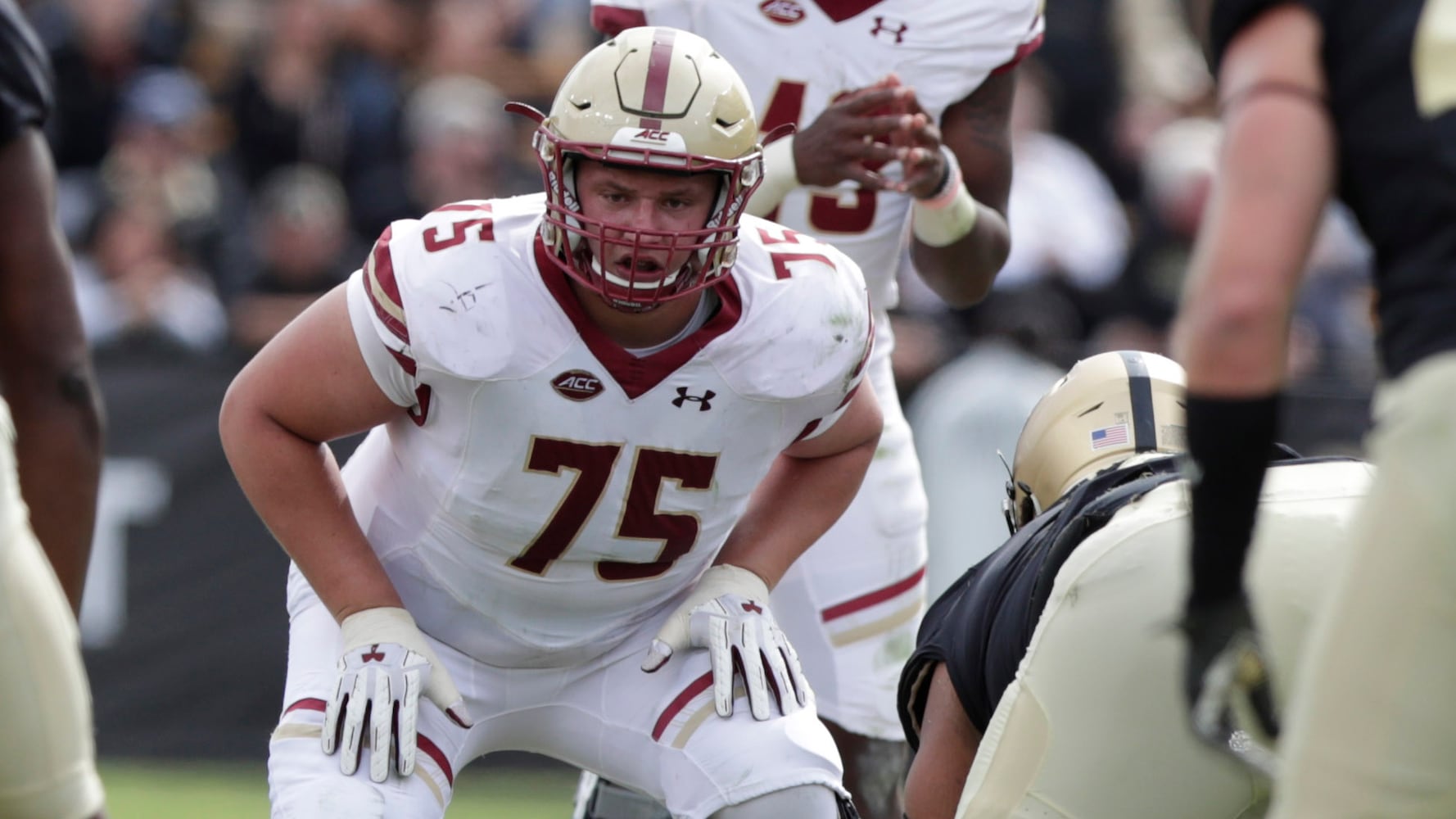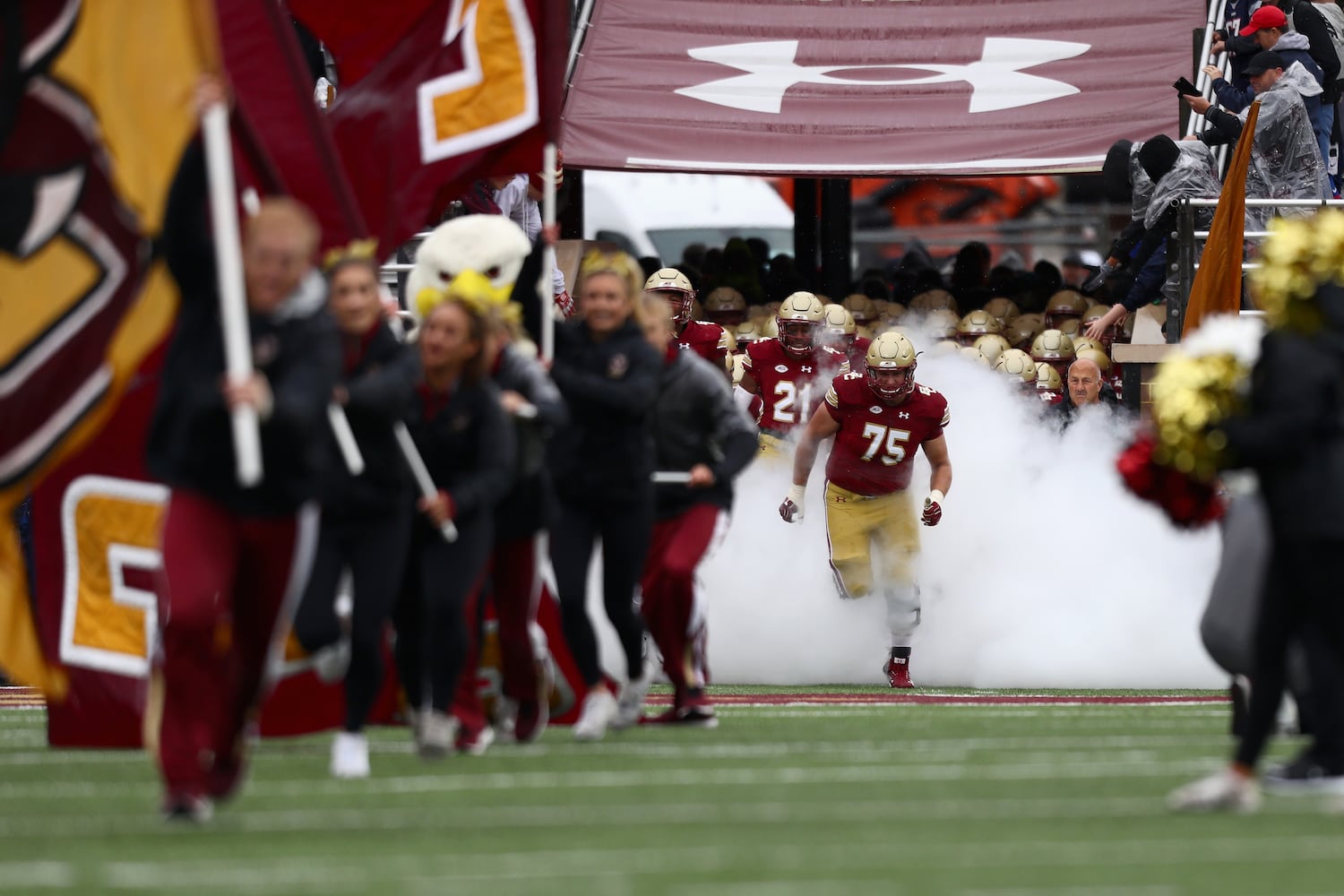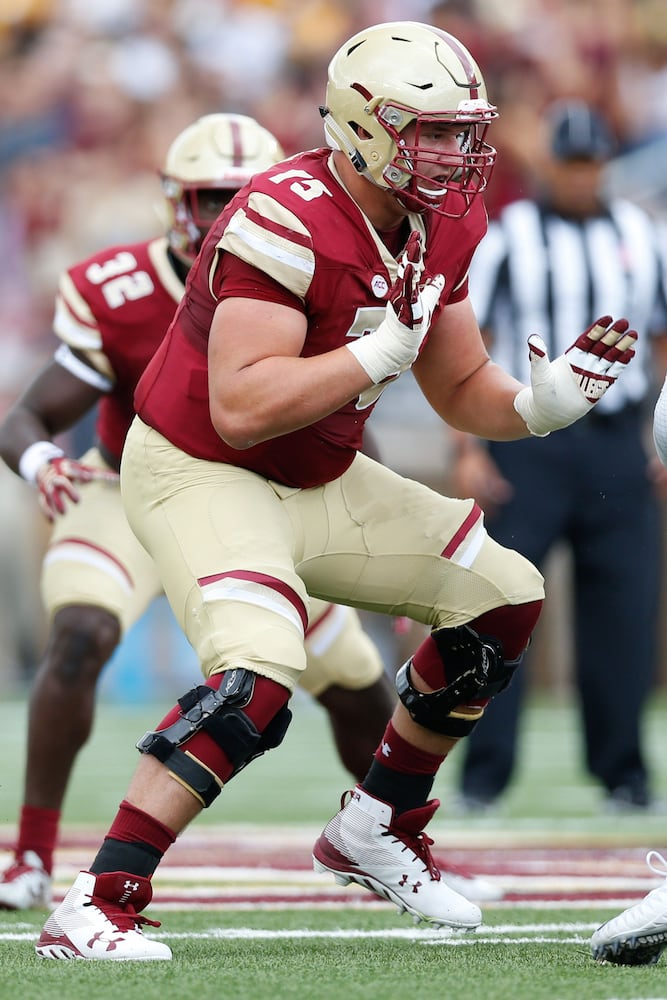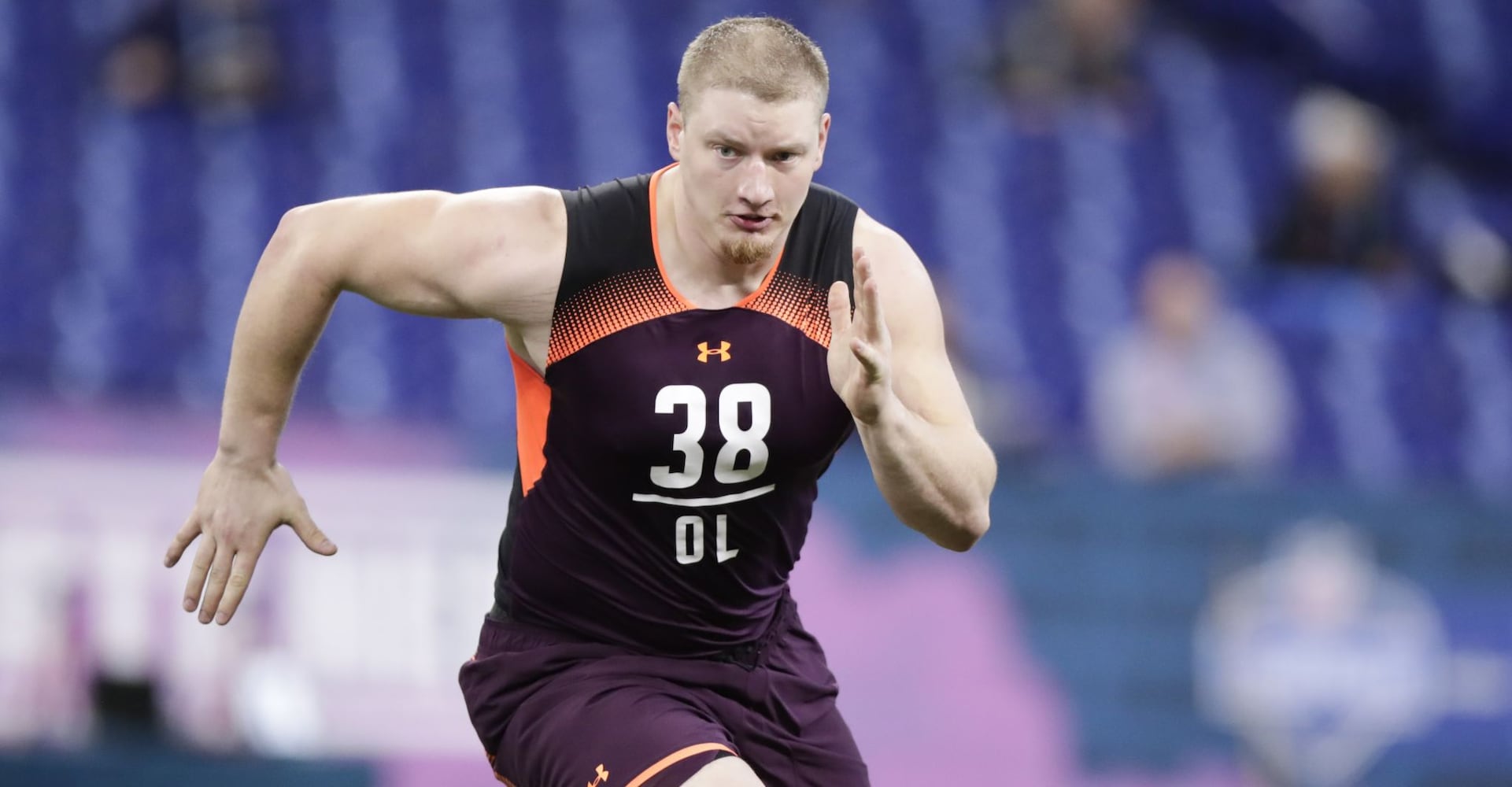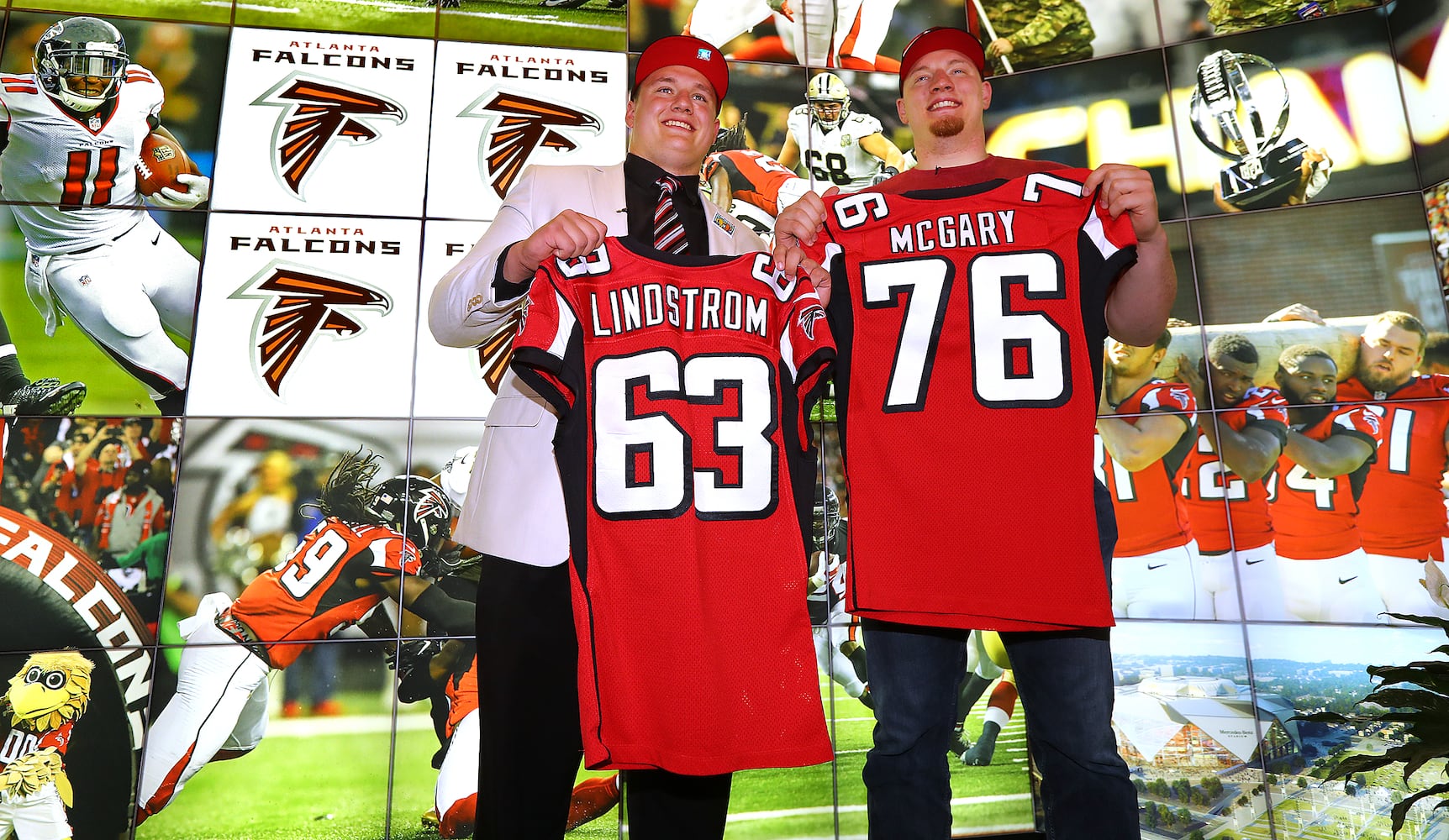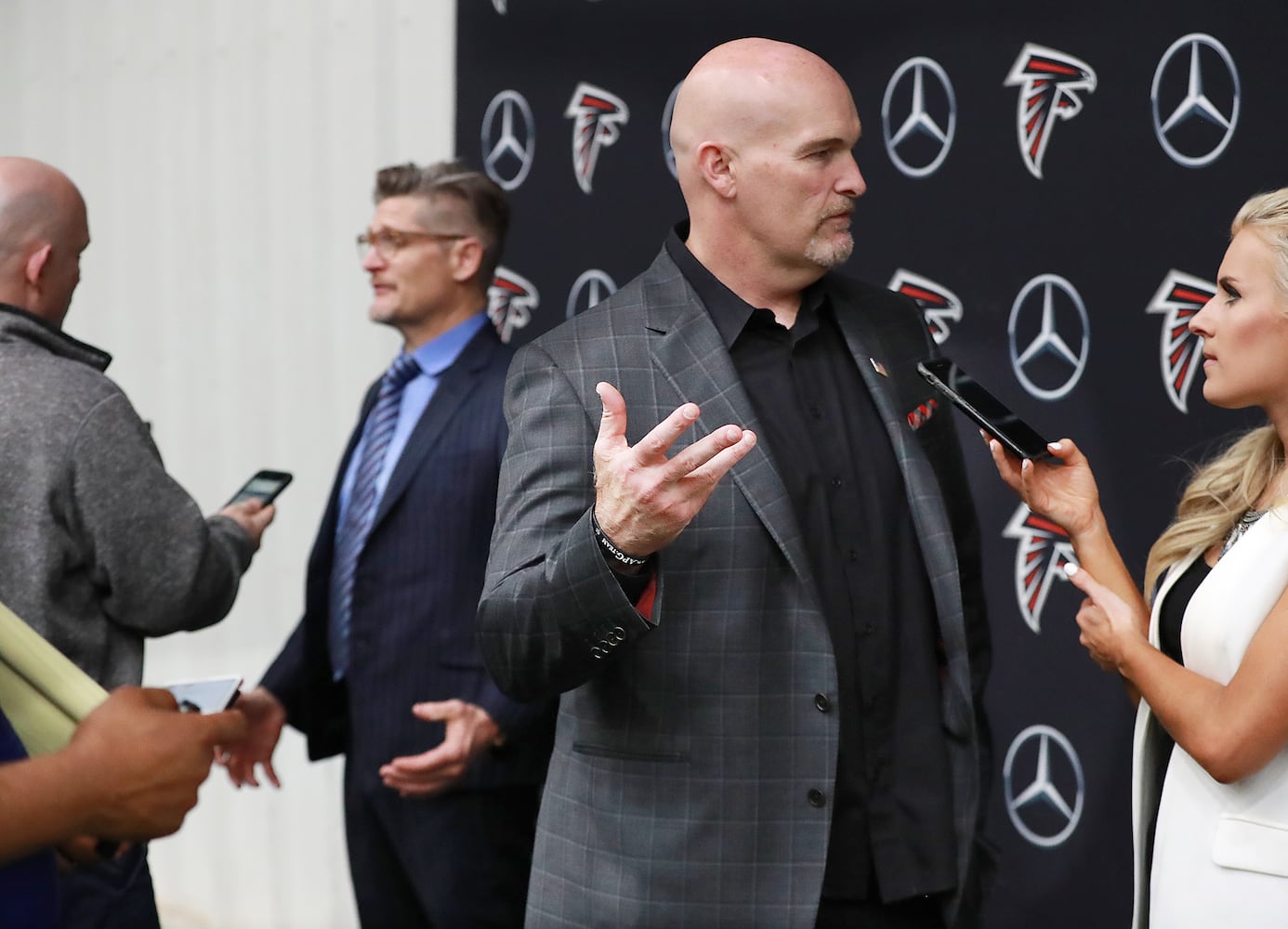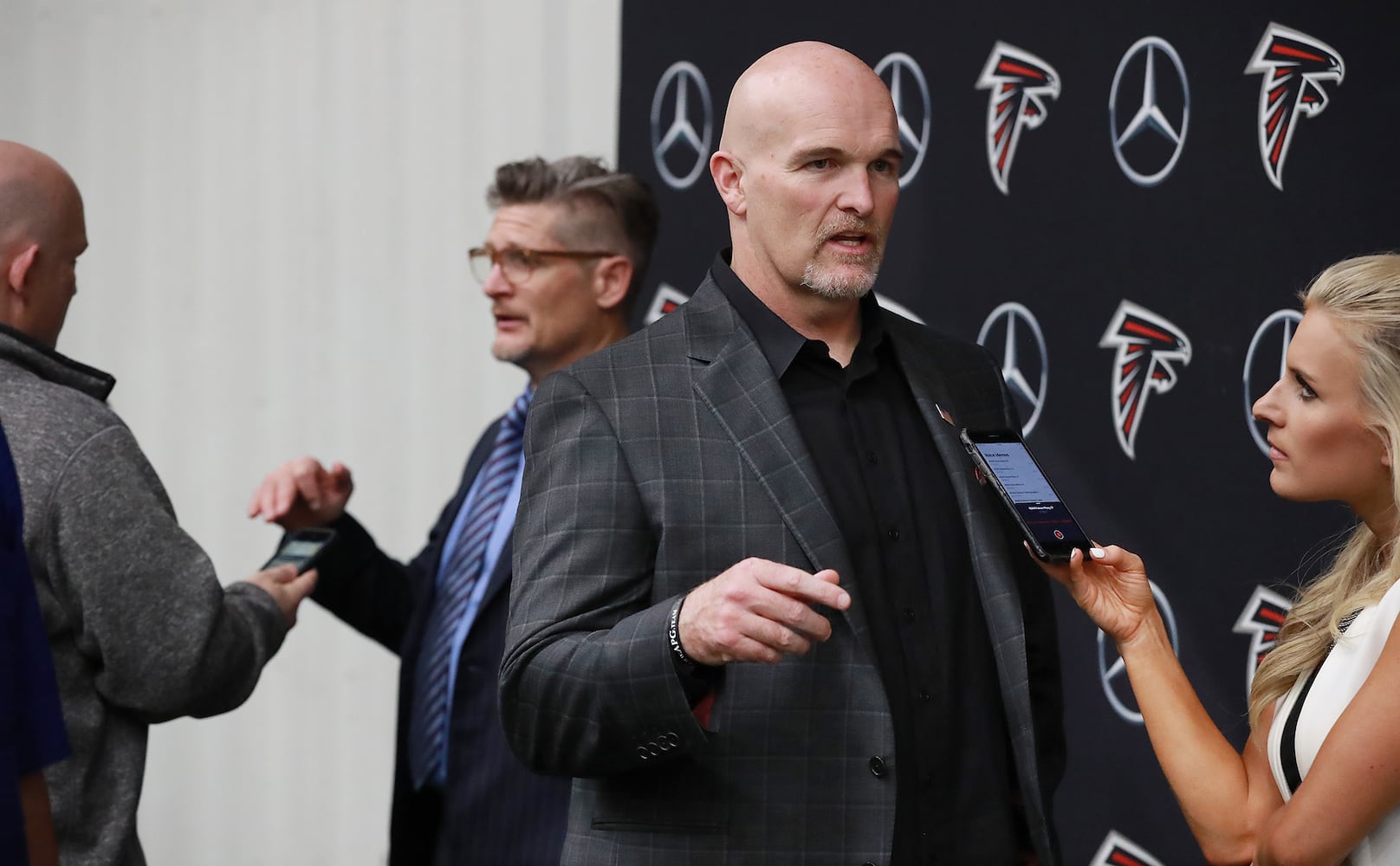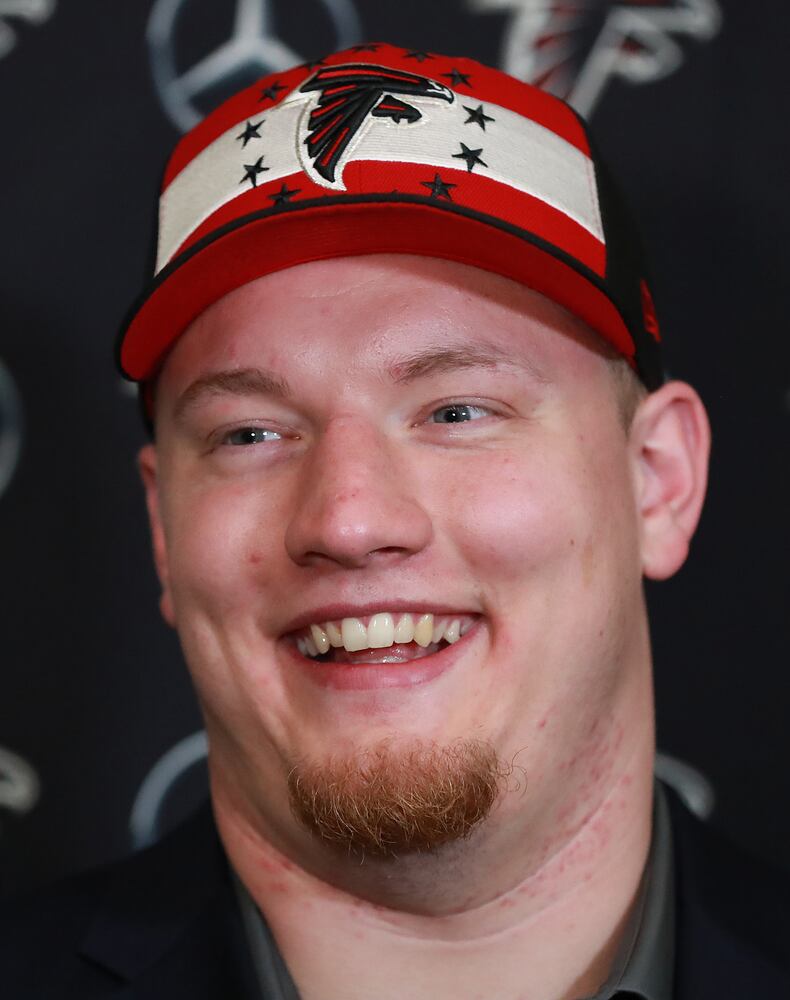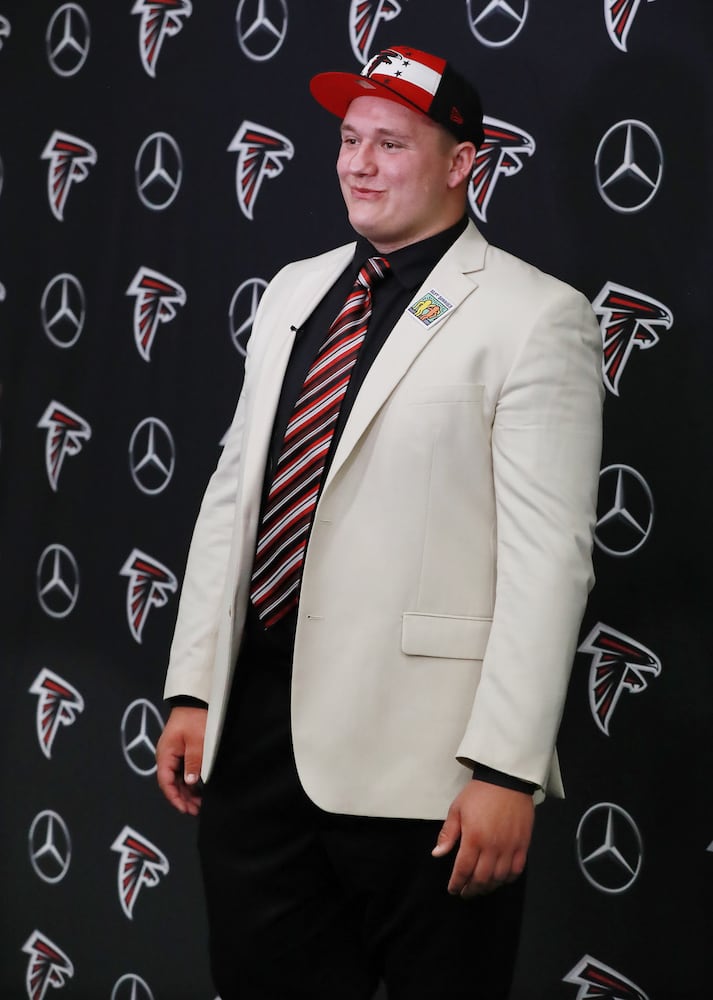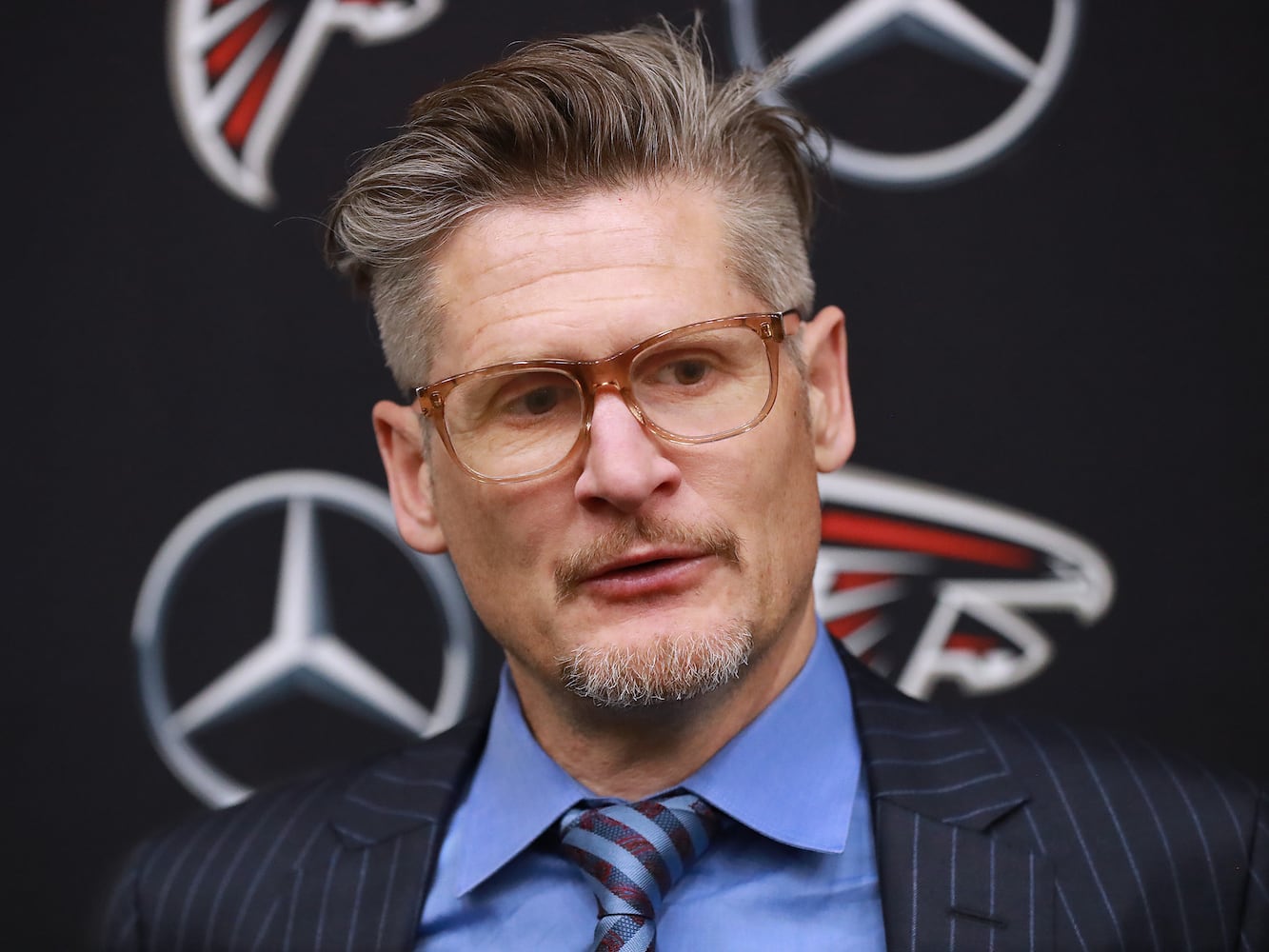After trying to trade up, the Falcons retained the 14th pick in the draft and selected Boston College offensive guard Chris Lindstrom on Thursday night.
“It’s a dream come true, it’s a special night,” Lindstrom said via telephone.
Houston defensive tackle Ed Oliver went to the Bills with the ninth pick. Clemson defensive tackle Christian Wilkins went to the Dolphins with the 13th, leaving the Falcons to select an offensive lineman, who some draft analysts considered a second-day (second- or third-round) pick.
» Mark Bradley: Reasons to like Lindstrom pick
» Draft Bio: More to know about Lindstrom
The Falcons sent a several executives to Massachusetts to work out Lindstrom two weeks ago.
“It was a great workout,” Lindstrom said. “I had a great relationship with the staff and everyone. Atlanta was definitely a place that I wanted to go. I’m just thankful for this opportunity.”
Falcons general manager Thomas Dimitroff, coach Dan Quinn, assistant general manager Scott Pioli, offensive line coach Chris Morgan and assistant offensive line coach Bob Kronenberg were at the workout.
Lindstrom was not told if he would be considered a starter.
“I’m just trying to help the team, come in and work,” Lindstrom said.
He was asked, “Can you start in the NFL?”
“I’m just trying to come in and work right now and try to be a great player,” Lindstrom said.
Lindstrom played mostly on the right side for the Eagles.
“I’m comfortable at both (right and left guard),” Lindstrom said. “A lot of my game snaps have been at right (guard).”
Lindstrom described his style of play.
“I’m just a hard-nosed, dependable and accountable guy,” Lindstrom said. “I’m trying to finish people and every play, do my job.”
The Falcons’ line was porous last season as they gave up 108 quarterback hits, a career-high for Matt Ryan, and were 31st in stuffed-runs for no gain or losses.
The Falcons signed guards James Carpenter, Jamon Brown and Adam Gettis in free agency.
The last time the Falcons picked a guard in the first round was in 1985, when they selected Bill Fralic second overall.
Since 2008, 14 guards have been drafted in the first round, including three 14th or higher.
Quenton Nelson was selected sixth last season by the Colts. He improved the Colts’ line and helped them return to the playoffs.
In 2013, Jonathan Cooper was selected seventh overall by the Cardinals and was a bust.
Also in 2013, Chance Warmack was selected 10th overall by the Titans.
The pick was not well-received by the fans at Mercedes-Benz Stadium when it was announced to a crowd of season ticket holders.
Lindstrom was an all-ACC pick and made 48 consecutive starts for Boston College, the same school that produced Ryan.
“He’s come up to speak to the team a few times,” Lindstrom said. “He’s a great ambassador to what it means to be a B.C. man and I’m thankful that I’ll be able to play with him.”
Some will contend that this pick was a reach and bring up the Falcons' record for drafting linemen under Dimitroff.
“To the numbers, I think this is a big year,” Dimitroff said at the NFL combine last month when discussing the linemen in the draft. “It’s not only a year for tackles, this year guards are going to be falling into the first round. There could be a run on seven to 10 potentially. Not only tackles, but also potential guards.”
The drafting of guards in the first round has traditionally been frowned upon.
But Dimitroff believes that times have changed.
“Old-time theory is that you would never take a guard that early,” Dimitroff said at the combine. “But now, we’ve talked about it. You’ve seen the change over the last 10 years where if an organization feels that a player can be a top player for them for years to come and hopefully start from Day 1, they are more apt to go after someone at 15, 25 or 30 where they might not have before.”
The Falcons need the help. They had six different players start at guard last season.
“I’m a lot more open to that now that I ever would have been,” Dimitroff said. “Just like the discussion about whether a team should move up 21 spots to go after a receiver. Things have changed.”
Dimitroff knew drafting a guard would be questioned.
“Most people understand that there are some really good linemen out there,” Dimitroff said. “If there are number of guards there or a position and a team thinks they can get them at a better value, maybe a little bit later in the second round or the middle of the second round, then that can be beneficial as well.”
About the Author
Keep Reading
The Latest
Featured
